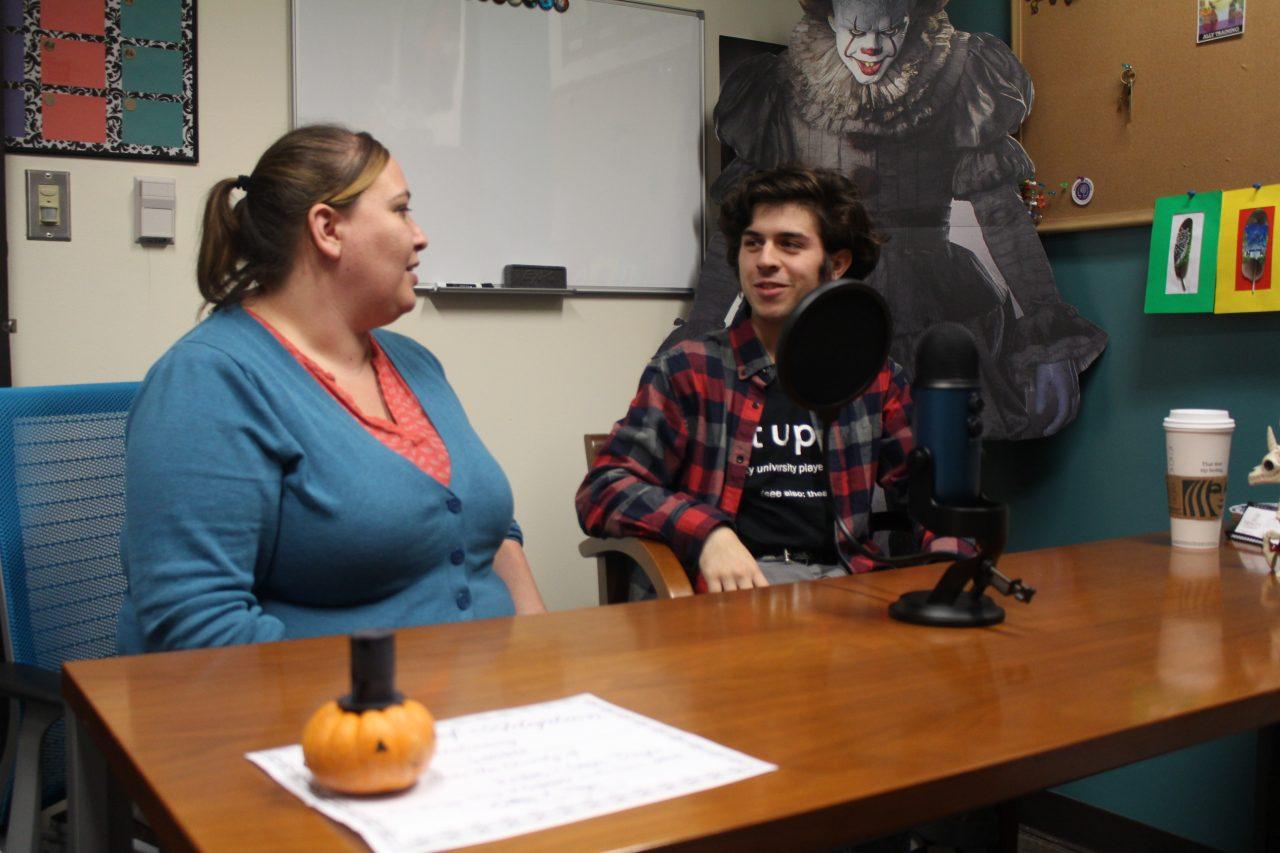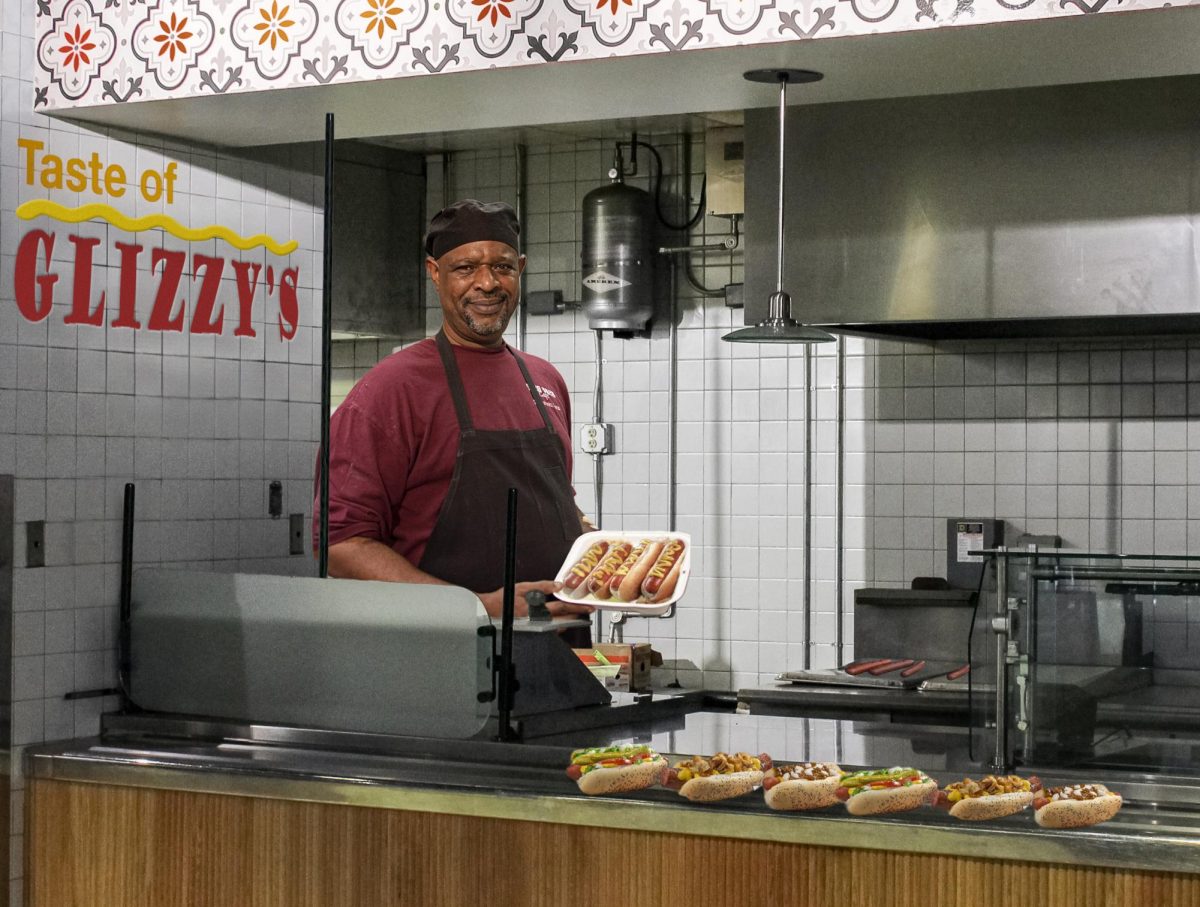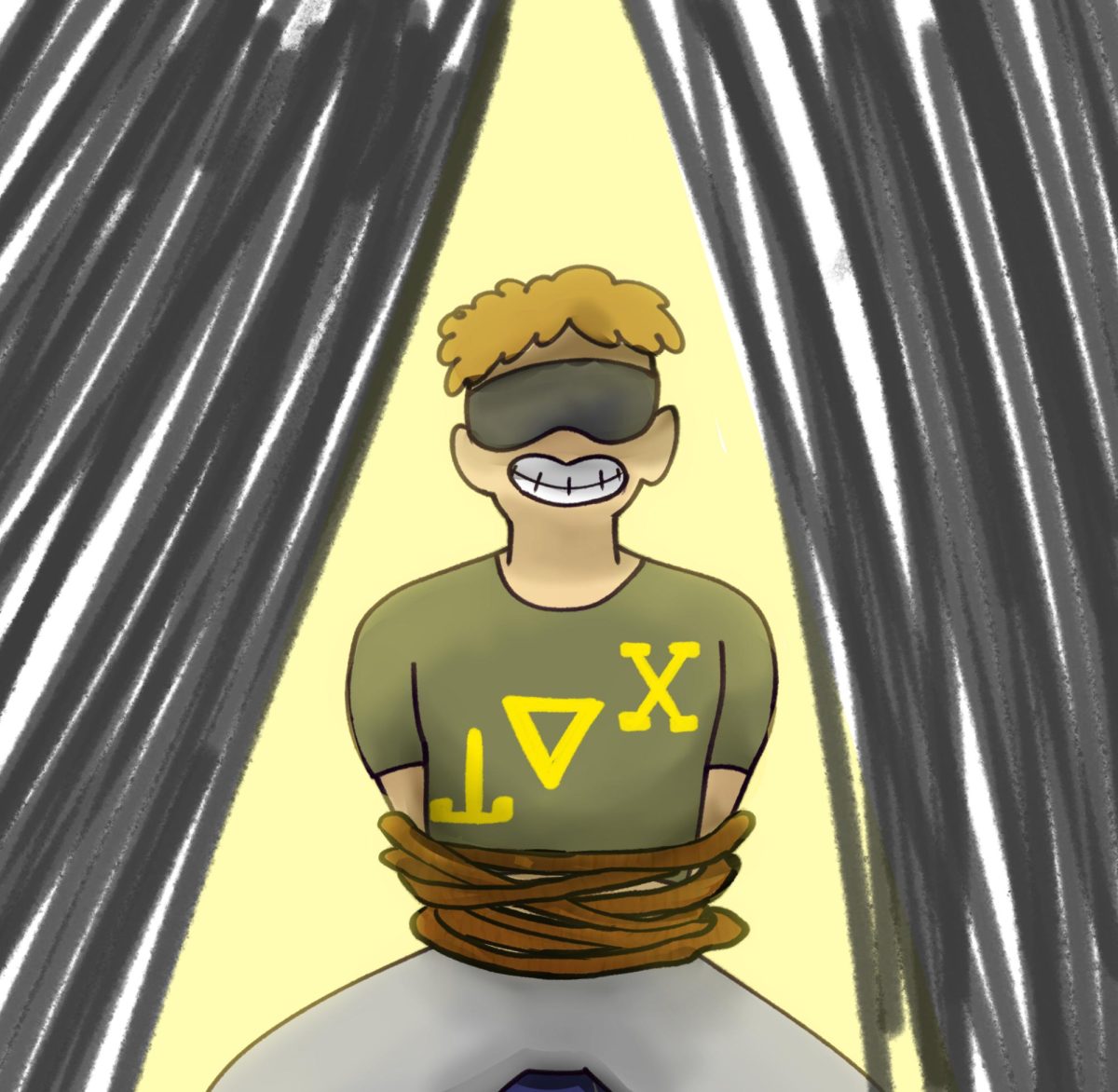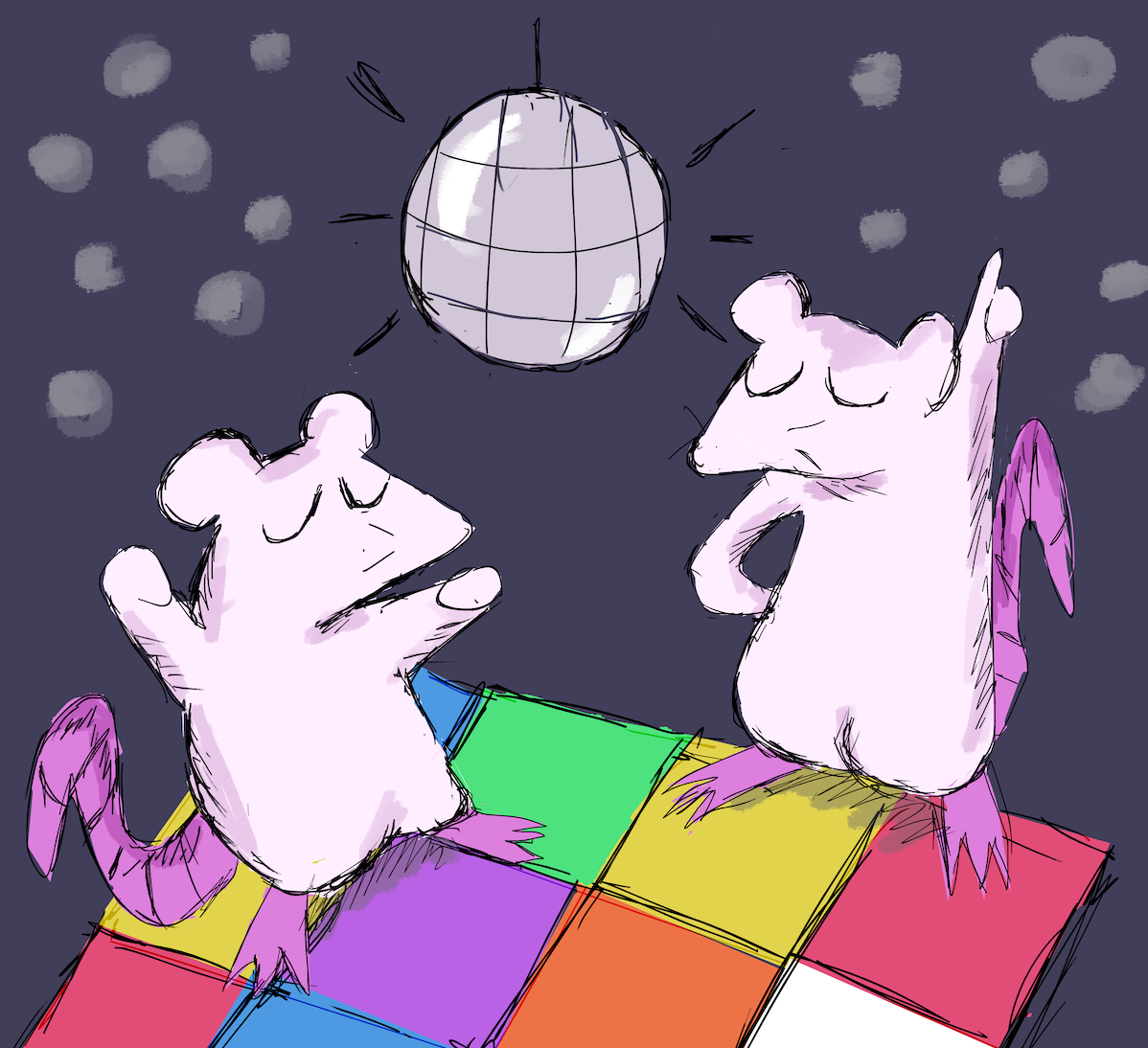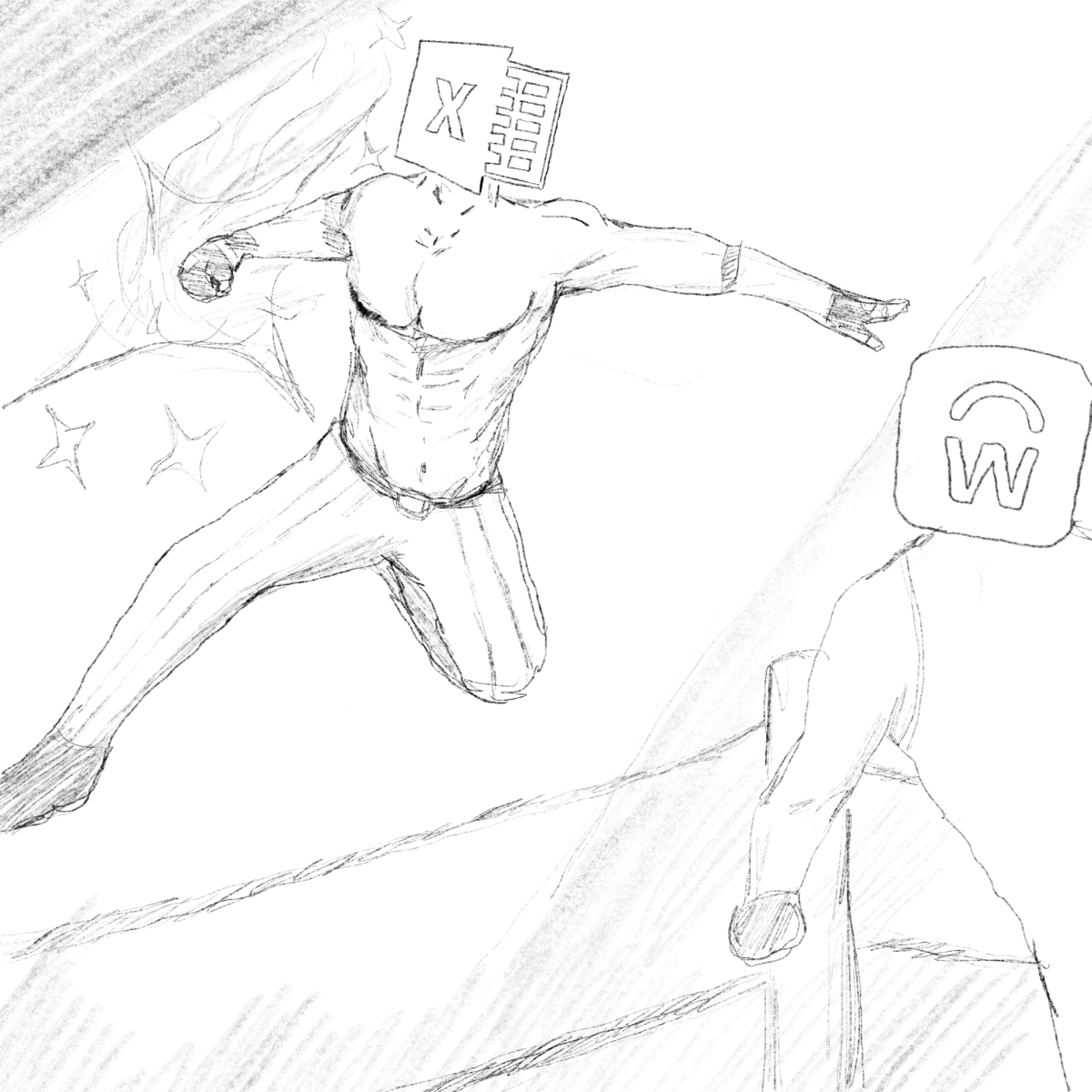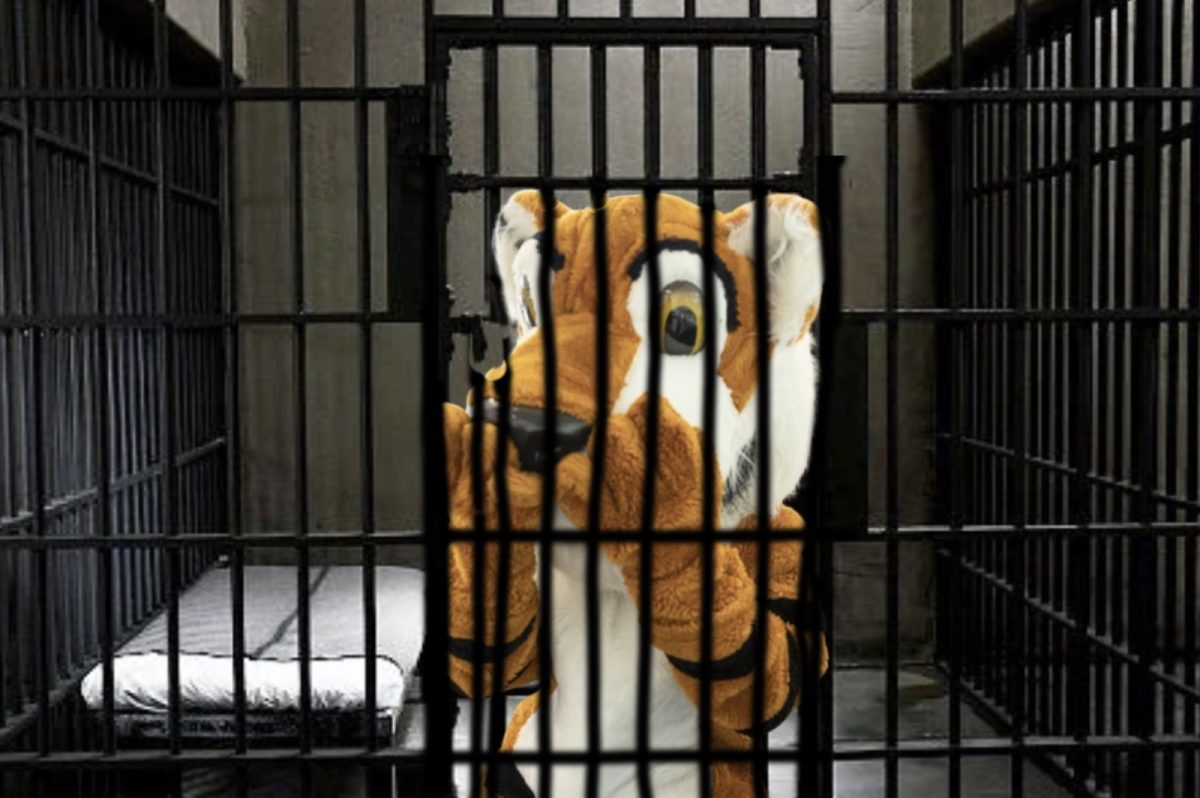Photo by Mona Mirpour
For the past year, sophomore Anthony Tresca and Katherine Troyer, assistant director for programs in the Collaborative for Learning and Teaching (CLT), have been recording episodes of a horror-themed podcast, “Such a Nightmare: Conversations about Horror.” Tresca and Troyer’s aim is to combine film analysis of horror films with an accessible and engaging medium — the spoken word.
The idea for this project began in Fall 2018 when Tresca was enrolled in Troyer’s section of the Science Fiction First-Year Experience (FYE). During office hours last spring, movies became a frequent topic of discussion..
“At the end of the first semester, we began talking about doing research and working together over the summer,” Tresca said. “I would pop in once or twice a week during the spring semester of last year, and we would just talk about what we were going to be doing with [our research], and we also would often go off on tangents on other subjects, particularly movies.”
Tresca tends towards more avant-garde and experimental horror movies like “The Killing of a Sacred Deer,” “Suspiria” and “Sorry to Bother You,” while Troyer prefers watching more mainstream or popular horror movies in her free time as a break from her more serious film research.
“Usually I know I’ll hate a movie because Anthony loves it, and vice versa,” Troyer said.
However, the pair found that they don’t disagree on everything.
“We found that in the Venn diagram of Anthony’s interests and my interests, we have this very narrow area,” Troyer said. “We realized that we both adore horror comedy, and I don’t think there’s a single horror comedy film that we don’t both like … from there we realized that actually that was true for a good chunk of the horror genre in general.”
A film that was instrumental in sparking this realization was Jordan Peele’s 2019 film “Us,” which neither Troyer or Tresca were impressed by.
“We wanted to like it — for our full thoughts, listen to our podcast — but we realized with that [episode] that we both agreed on what we didn’t think was good about ‘Us,'” Tresca said. “It was even more than just both of us not liking the movie, it was that the specific problems that we had with it were the same.”
“The conversation we had about ‘Us’ was actually the genesis for the podcast,” Troyer said. “It’s the first episode we recorded, and it was the episode that made us realize that we had a sort of interesting approach to this topic, which is that we tend to took at films that either have been really well-received critically but we have a problem with or films that people critically did not receive well but we think are delightful.”
For each episode, Troyer and Tresca work with one horror “text” and one critical framework as a lens with which they analyze the film.
“For [the episode on] ‘Halloween,’ we talked about the New Gothic. ‘Happy Death Day’ was about the idea of nostalgia and the Final Girl, ‘It: Chapter One’ was about coming-of-age narratives and ‘Chapter Two’ was about adaptations,” Troyer said. “Our episode on ‘Midsommar’ hasn’t been released yet, but our framework for that one is generic definition: does it actually count as a horror film?”
“‘Us’ was where we gave the foundational idea in horror scholarship — the national consciousness,” Tresca said. “This is the idea that horror is part of the cultural zeitgeist, and the things that we see relayed in texts — whether books, movies, whatever — represent the current fears of society.”
In his current role as a Collaborative intern and student researcher, Tresca has also been able to help Troyer design the syllabus of her new comparative literature class which will be available in the spring semester, The Home and American Horror. This class, listed as CMLT 3416, will meet on Mondays and Wednesdays from 3:55–5:10 p.m. and Tuesday evenings from 6:30–9 p.m., and will be able to fulfill either the Creative Expressions requirement in Pathways or the Death and Beyond cluster.
Overall, Tresca and Troyer both feel that a major benefit of condensing their project into a podcast form is being able to reach a more diverse audience, who may not necessarily read or have access to more formal academic work.
“Trinity has that reputation of that ‘Trinity bubble,’ and I think that the more of our incredibly amazing faculty who can showcase their work to people other than just other academics, the more we can create that bridge between Trinity and San Antonio — and we have some great faculty members who are already doing this,” Troyer said. “By Anthony and I setting up our podcast the way we do, we’re able to lay down that foundation [for critical thought], but then we’re also able to have a good time and make terrible puns.”
The next episode of “Such a Nightmare” on the film “Halloween” will come out on Oct. 31, and Trinitonian readers can listen in on iTunes.

